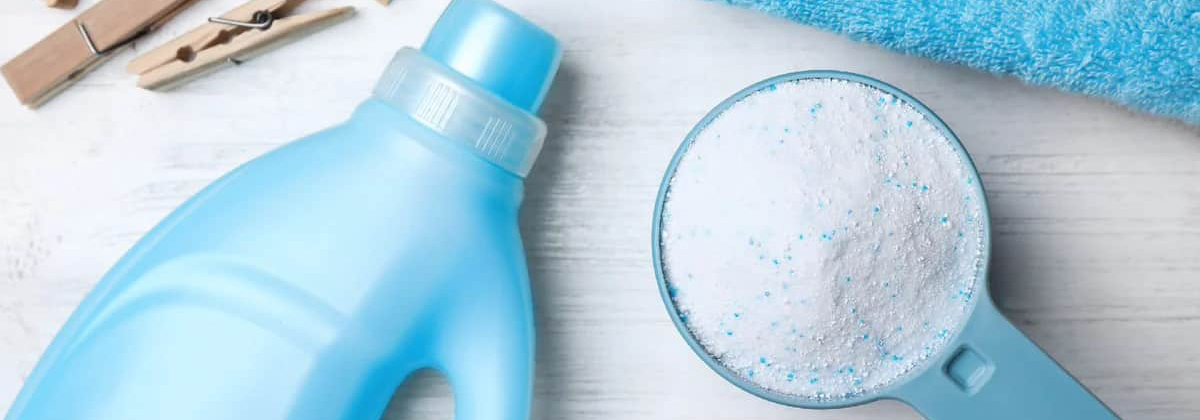14 Nov Introducing Washing Powders With and Without Enzymes
One of the most important things we deal with in our daily life is detergents, especially powders Because cleanliness attracts everyone’s attention. Choosing a suitable detergent is a challenge for most people. Most people prefer to use a detergent that doesn’t damage the texture of fabric and textiles. Today, some detergent manufacturers claim to use enzymes to improve the quality of their products. They believe these compounds increase the stain removal and degreasing power of powders. Another group of producers are against the use of enzymes. They think that enzymes cause fabric ageing due to frequent washing. But enzymes cause allergies and skin sensitivities. In this article, we will introduce washing powders with and without enzymes after examining the advantages and disadvantages of washing powders.
Advantages of washing powder
- Washing powders are composed of chemical compounds and active substances called anionics, which increase the power of cleaning and stain removal of clothes and bring shine to them.
- Washing powders produce foam after dissolving in water, which is due to the minerals in them. Different types of essential oils are used in these detergents to create a mild and pleasant scent.
- Another ingredient in powders is bleached which removes grease stains and odours from clothes.
- The most significant advantage of powders is their roughness, which helps to remove the most stubborn stains from all kinds of fabrics and makes washing easier. Just put some of them on the clothes, moisten the area, and rub gently. Then, you will see the most challenging stains disappear from the clothes.
- The powders are designed to be suitable for use in hard water. Also, the low and controlled foam production of these detergents makes washing easy and reduces water consumption. Compared to other detergents, powders have a more reasonable price and are economical.
- Washing powder packaging is cardboard and environmentally friendly.
- Powders are more durable than other detergents, and consumers can buy them bulk to save money.
- The presence of alkyl benzene sulfonates in the powder composition will easily remove grass, mud and soil stains.
- Washing powders, unlike liquids, don’t need preservatives.
Disadvantages of washing powder
- Detergents, especially washing powder, contain solid and dangerous chemicals such as acids and phosphates, which can cause sensitivity and allergies on the skin’s surface while removing pollution, stains, and germs.
- Detergent poisoning can cause vision loss, reduced vision, allergies, lung damage, dry skin, and even death in some cases.
- Detergent poisoning occurs when someone swallows anionic or cationic detergents or uses them without observing safety precautions. Therefore, placing detergents in a safe place away from sunlight minimizes the risk of accidental ingestion. Also, following important points while washing and using the suitable washing powder will reduce the symptoms of poisoning, respiratory problems and other organs.
- There is a possibility of colour interference of clothes if the clothes aren’t separated before washing.
- Powders change the shape of clothes and clothing fibres.
- They bleach black and dark clothes.
- These detergents cause allergies and skin diseases in children and people with sensitive skin.
- In water with low temperatures and a high degree of hardness, they do not dissolve well and cause traces of pollution and additional detergents to remain on the clothes.
- Sodium sulfate in washing powder harms the sewage system and the environment.
- If they get wet or exposed to sunlight, they will lose their function.
- The variety of washing powder is less compared to washing liquid.
What is the enzyme in washing powder?
Since 1967, detergent manufacturers have used enzymes in the composition of detergents for the first time. This issue was the turning point that caused enzymes to become one of the key and principal components of detergents. The advancement of science and technology has led to the use of valuable additives, such as bleaches, enzymes, etc, to increase the power of stain removal and degreasing in detergent compositions. They break down organic matter and macromolecules such as fats, proteins and carbohydrates. When in contact with water, they quickly dissolve in it and improve the performance of surfactants during washing. Enzymes act like a catalyst and reduce the time it takes to remove stains and dirt from fabric surfaces. Using a small amount of enzyme in the composition of detergents improves the performance of powders.
The suitable temperature for the release of enzymes is 40 degrees Celsius. Of course, this isn’t a general rule; For example, protease is an enzyme activated at high temperatures, such as 100 degrees. Meanwhile, some enzymes are deactivated at 60 degrees. Also, another group of enzymes can start in cold water. Using enzymes, you can remove the most stubborn stains from the clothes and prevent the growth of bacteria on the surfaces of the clothes. These critical and efficient compounds are often colourless and are used in industry in solid or liquid form.
What are the advantages and disadvantages of enzymes in washing powder?
- Enzymes, in addition to removing dirt and stains, increase shine, cleaning power and soften detergents, which reduces water and electricity consumption.
- Another difference between enzyme powder and enzyme-free powder is the reduction of washing time; Because, when using enzyme powders, there’s no need to soak clothes and use hot water. Therefore, it becomes easy to wash clothes, and less detergent is used.
- Most enzymes are produced from recyclable materials in the environment. Therefore, they won’t have destructive effects on nature.
- Biological detergents (Bio-Detergent) are the best choice to remove stains caused by protein and fat.
- These detergents can cause allergic reactions and skin sensitivity in people with sensitive skin and children. Enzymes aren’t harmful, but some always remain on the surfaces of clothes and cause itching and skin allergies.
What is washing powder without enzymes?
Today, detergents are available in various types. Since cleanliness is essential for most people, choosing a suitable and high-quality detergent is very important. Powders that don’t contain cellulase, protease, amylase and lipase are enzyme-free laundry powder. You may think that these detergents have little cleaning power. But it’s completely wrong. Detergent manufacturers use bleaches, organic carboxylates, carbonates and surfactants in laundry powder compositions.
Another group of enzyme-free laundry powders are designed to be suitable for washing in cold water. These powders, by dissolving in cold water, prevent white clothes from rotting, change the colour of coloured clothes, and change the shape of new clothes. Therefore, by using manual enzyme-free washing powder, you no longer have to worry about damaging the fabric’s texture; these detergents restore the vitality and shine of the clothes. The pleasant and gentle scent of laundry powders without enzymes is another factor that makes the difference between laundry powders with and without enzymes. It should be noted that the solubility of washing powder in cold water depends on its quality.
The properties of enzyme-free powder
- They protect the colour of clothes.
- Prevents damage to fabric fibres.
- There’s no possibility of sensitivity or allergy in these detergents.
- These detergents are suitable for washing children’s clothes.
- They have high cleaning power.
Is enzyme powder better or enzyme-free?
Non-biological detergents, or powders without enzymes, have high cleaning power, and you can safely wash clothes using them and be sure that you will have clean and vibrant clothes after the washing process is finished. The difference between enzyme powder and enzyme-free powder is that when using enzyme-free powders, you need water at a higher temperature so that the washing process is done well. On the other hand, enzyme-free laundry powders are suitable for families with children or people with skin allergies. The cleaning and degreasing power of enzyme-containing powders is more than normal ones. Still, because the use of enzyme-containing powders can cause damage to clothing fibres and change their colour in the long term, most consumers prefer to use manual powders without enzymes.
When you are faced with a mountain of dirty clothes full of stains, it’s better to use biological detergents to have clean clothes without stains. When using enzyme-free washing powder, you can use lukewarm water and reduce the washing time. In this way, clothes’ lifespan will increase; hot water changes the fibres’ shape and the fabric colour. But if you have to use laundry powders without enzymes or if you prefer them, it’s necessary to pour some detergent on the stains before washing. Then, start the normal washing process.
To wrap up
Most people believe that laundry powders without enzymes have low cleaning power and cause stains and dirt to remain on the clothes, but it isn’t the case. These detergents, like enzyme detergents, have high cleaning power and can be used to wash clothes. On the other hand, enzyme-free detergents, unlike enzymes, won’t cause any allergies or sensitivities. At the same time, enzyme powders cause itching and skin sensitivity. Also, enzyme powders accelerate skin ageing when washing clothes by hand. If you don’t have the opportunity or patience to wash your clothes, you can count on the specialized NeatEx team. With the most advanced tools and the latest knowledge, we will deliver your clothes of the best quality as soon as possible. Don’t damage your valuable clothes with improper washing. NeatEx washes your clothes best and ensures you have clean and tidy clothes.




Sorry, the comment form is closed at this time.